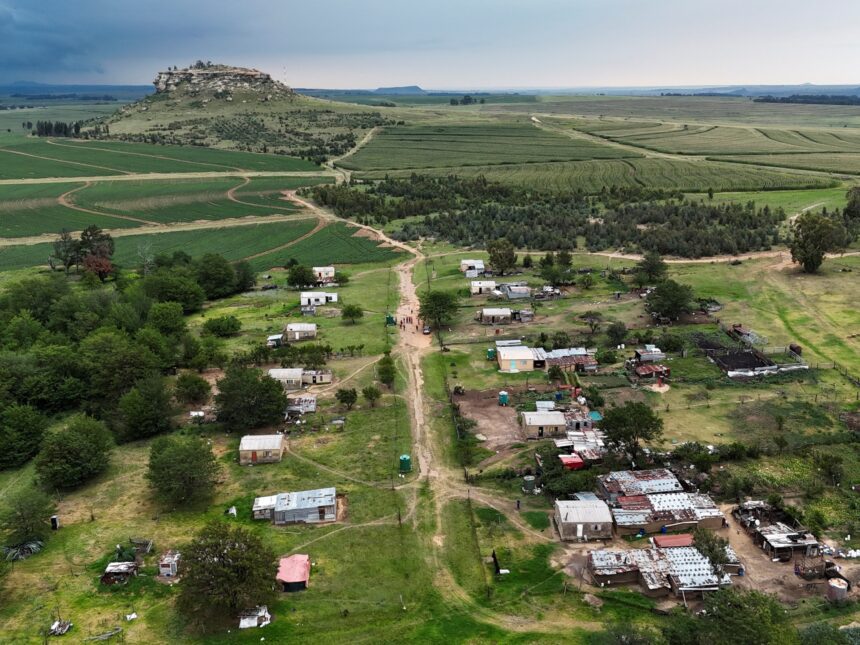Donald Trump, the President of the United States, has offered to provide shelter to white South Africans as refugees fleeing persecution. However, this offer may not attract as many people as expected, as right-wing white advocacy groups are focused on addressing the perceived injustices of Black majority rule in South Africa.
Trump recently issued an executive order to reduce US aid to South Africa, citing a land expropriation act signed by President Cyril Ramaphosa last month. The act aims to correct historical land inequalities that have resulted from South Africa’s history of white supremacy.
The executive order from Trump allows for the resettlement of “Afrikaners in South Africa who are victims of unjust racial discrimination” as refugees in the US.
Afrikaners, who are predominantly white descendants of early Dutch and French settlers, own the majority of farmland in the country.
Some South Africans seem hesitant to take up Trump’s offer. For example, 78-year-old Neville van der Merwe from Bothasig near Cape Town questioned the necessity of leaving the country if there are no major problems present. He mentioned that the situation in South Africa seems normal and wondered what individuals would do in the US.
The land expropriation act signed by Ramaphosa aims to address the racial disparities in land ownership, as three-quarters of privately owned land in South Africa is currently held by the white minority. The act makes it easier for the state to expropriate land in the public interest.
Ramaphosa has defended the policy, emphasizing the need for land reform in South Africa.
Statistics agency data shows that white people make up 7.2 percent of South Africa’s population of 63 million, although it does not specify how many are Afrikaners.
Historically, most farmland in South Africa was allocated to whites by the British colonial rulers. During the apartheid era in 1950, the National Party seized 85 percent of the land, displacing 3.5 million Black individuals from their homes.
The African National Congress (ANC), the largest party in the ruling coalition, argues that Trump is spreading misinformation from AfriForum, an Afrikaner-led group.
AfriForum, which has engaged with Trump’s previous administration on its concerns, has stated that they are not interested in taking up the offer to resettle in the US. CEO Kallie Kriel highlighted the potential risks to the cultural identity of Afrikaners if they were to emigrate.
Homeland
The Solidarity Movement, which includes AfriForum and the Solidarity trade union, representing approximately 600,000 Afrikaner families and two million individuals, has affirmed their commitment to South Africa.
While there may be individuals within the community considering emigration, the Solidarity Movement emphasized that repatriation of Afrikaners as refugees is not a solution for them.
Similarly, representatives of Orania, an Afrikaner-only settlement in South Africa, have rejected Trump’s offer, stating their love for and dedication to their homeland.
It is important to note that South Africa’s land policies since the end of apartheid have not involved the forced seizure of white-owned land.
Some individuals appreciated Trump’s gesture, with one carpenter from Bothasig, 57-year-old Werner van Niekerk, acknowledging the offer of asylum while not confirming any plans to migrate to the US.
Meanwhile, author Pieter du Toit added a touch of humor to the situation, raising lighthearted questions about determining “Afrikanership,” Elon Musk’s potential assistance, and the availability of pick-up trucks in the US.










